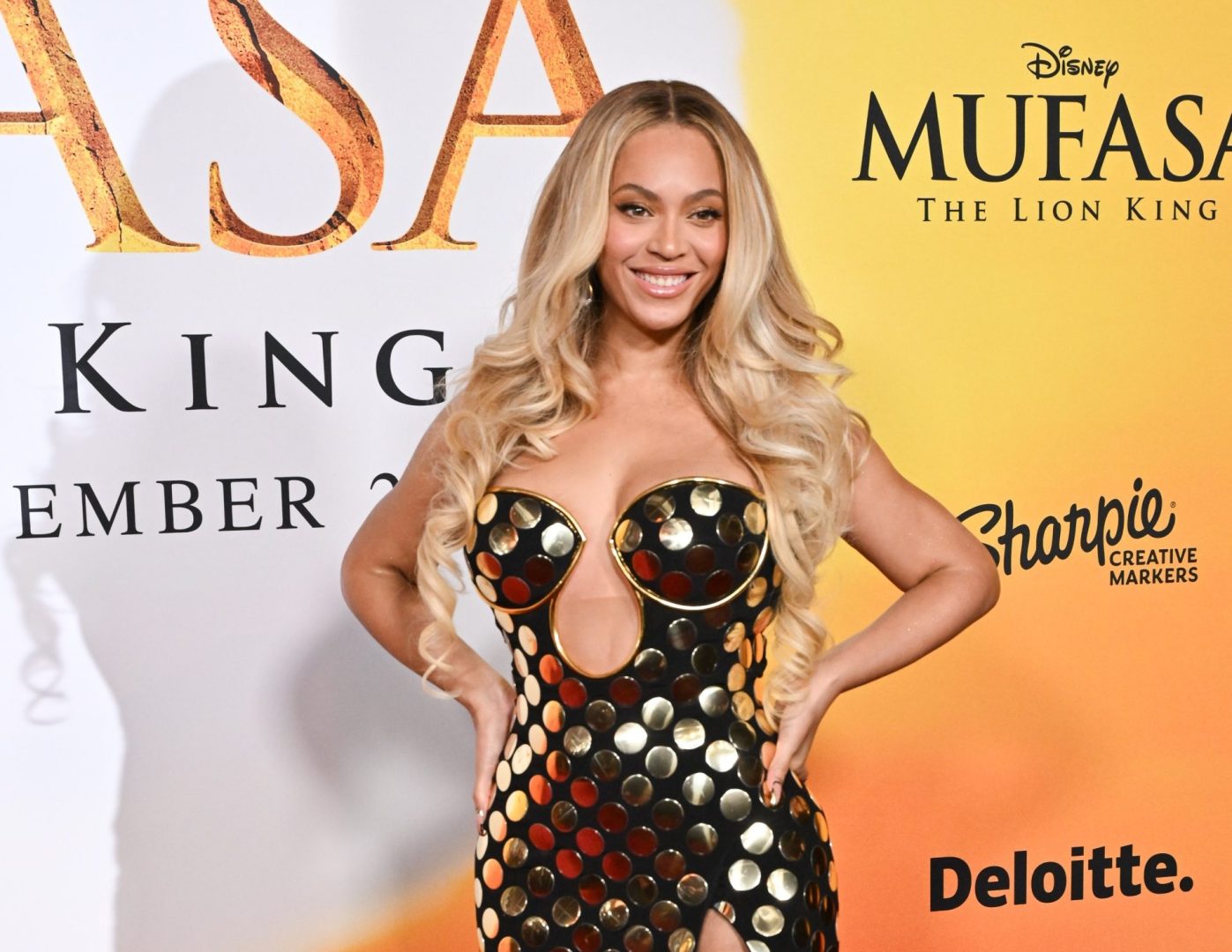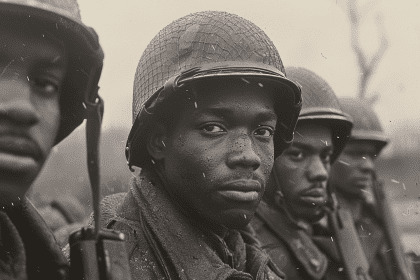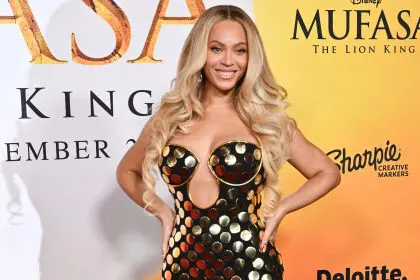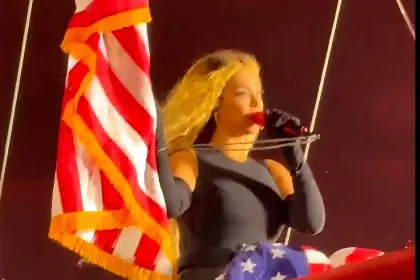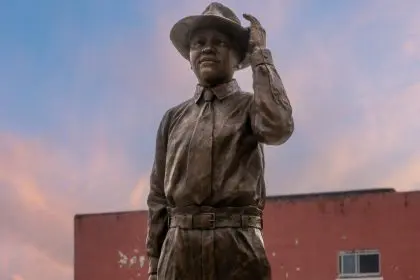Beyoncé has encountered significant criticism following her decision to wear a Buffalo Soldier-themed shirt during her June 22 Paris concert that contained language many consider offensive toward Native Americans. The garment, worn during her sold-out Cowboy Carter Tour performance, featured historical text describing Native Americans as enemies alongside bandits and criminals, prompting widespread backlash from fans and cultural critics.
The controversy emerged when fan accounts shared images of the shirt, which detailed the history of the all-Black military regiment established in the 19th century. The problematic language appeared in the fifth paragraph of the essay printed on the shirt’s back, characterizing various groups including Native Americans in derogatory terms that many found inappropriate for contemporary performance attire.
The incident has reignited broader discussions about the complex legacy of the Buffalo Soldiers and how their history intersects with American colonialism, military service, and the treatment of indigenous populations during westward expansion.
Historical context complicates soldier legacy
The Buffalo Soldiers represented African American military regiments formed after the Civil War to serve on the American frontier, with the nickname allegedly originating from Native American tribes who fought against these units during the Indian Wars. While these soldiers faced significant racial discrimination within the military and broader society, their service often involved enforcing federal policies that displaced and harmed indigenous communities.
This dual nature of the Buffalo Soldiers’ legacy creates tension between honoring African American military service and acknowledging their role in campaigns against Native American tribes. The regiments served as instruments of American expansionist policies that resulted in the forced removal and subjugation of indigenous peoples throughout the western territories.
Modern historians have increasingly examined this complex history, noting how African American soldiers were often used to implement policies that paralleled the oppression they themselves faced. The nuanced nature of this historical relationship makes contemporary celebrations of Buffalo Soldier heritage particularly sensitive when they fail to acknowledge the full scope of their military activities.
Fan reactions reveal deep divisions
Social media responses to the shirt have demonstrated sharp divisions among Beyoncé’s fanbase, with some defending her right to honor Black military history while others criticized the insensitive language and historical framing. Many commenters expressed disappointment that the superstar would use such controversial imagery during a Juneteenth performance, a holiday specifically commemorating African American freedom.
Critics argued that numerous other African American military units from the Civil War or World War II could have been celebrated without the complicated colonial associations of the Buffalo Soldiers. The timing of wearing such a garment during a performance marking the end of slavery struck many as particularly inappropriate given the historical ironies involved.
Even typically supportive fan communities, including Beyoncé’s dedicated subreddit where criticism is rare, have struggled to defend the choice. The controversy has forced many admirers to confront uncomfortable questions about how historical military service should be commemorated when it involves harm to other marginalized communities.
Cowboy Carter era faces mounting criticism
The Buffalo Soldier shirt controversy represents the latest in a series of criticisms surrounding Beyoncé’s Cowboy Carter project, which has incorporated extensive American flag imagery and patriotic themes that some find problematic. Critics have characterized certain elements of the era as military propaganda or tone-deaf patriotism, particularly during periods of political tension and social unrest.
The combination of American patriotic symbolism with Black pride messaging has created cognitive dissonance for some observers who expected more subversive approaches to these themes. Many supporters initially anticipated that Beyoncé would critique or reclaim American symbols rather than present them in straightforward celebratory contexts.
The absence of clear subversion or critical commentary in the patriotic imagery has disappointed fans who hoped for more nuanced engagement with American history and its treatment of marginalized communities. This expectation gap has contributed to ongoing debates about artistic responsibility and historical representation in popular culture.
Cultural sensitivity questions persist
The controversy highlights broader questions about how contemporary artists should engage with complex historical narratives that involve multiple marginalized groups. The challenge of honoring African American military service while acknowledging harm to Native American communities requires careful consideration that the shirt’s language appears to have lacked.
The incident demonstrates the importance of thorough historical research and cultural consultation when incorporating military history into entertainment contexts, particularly when that history involves conflicts between different oppressed populations.

